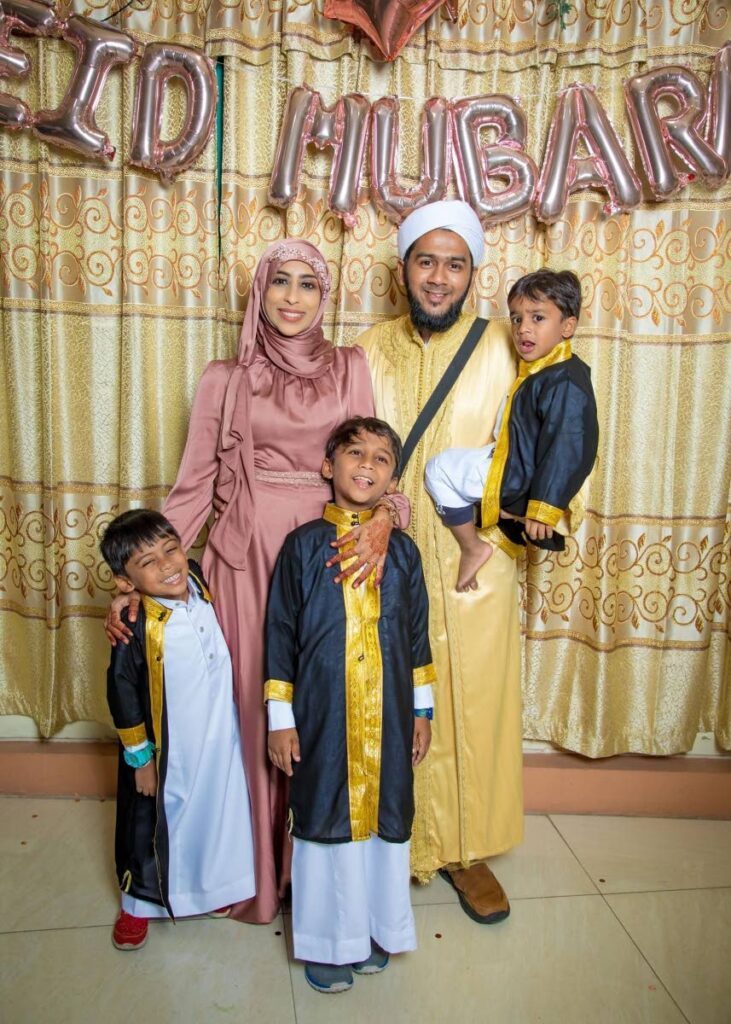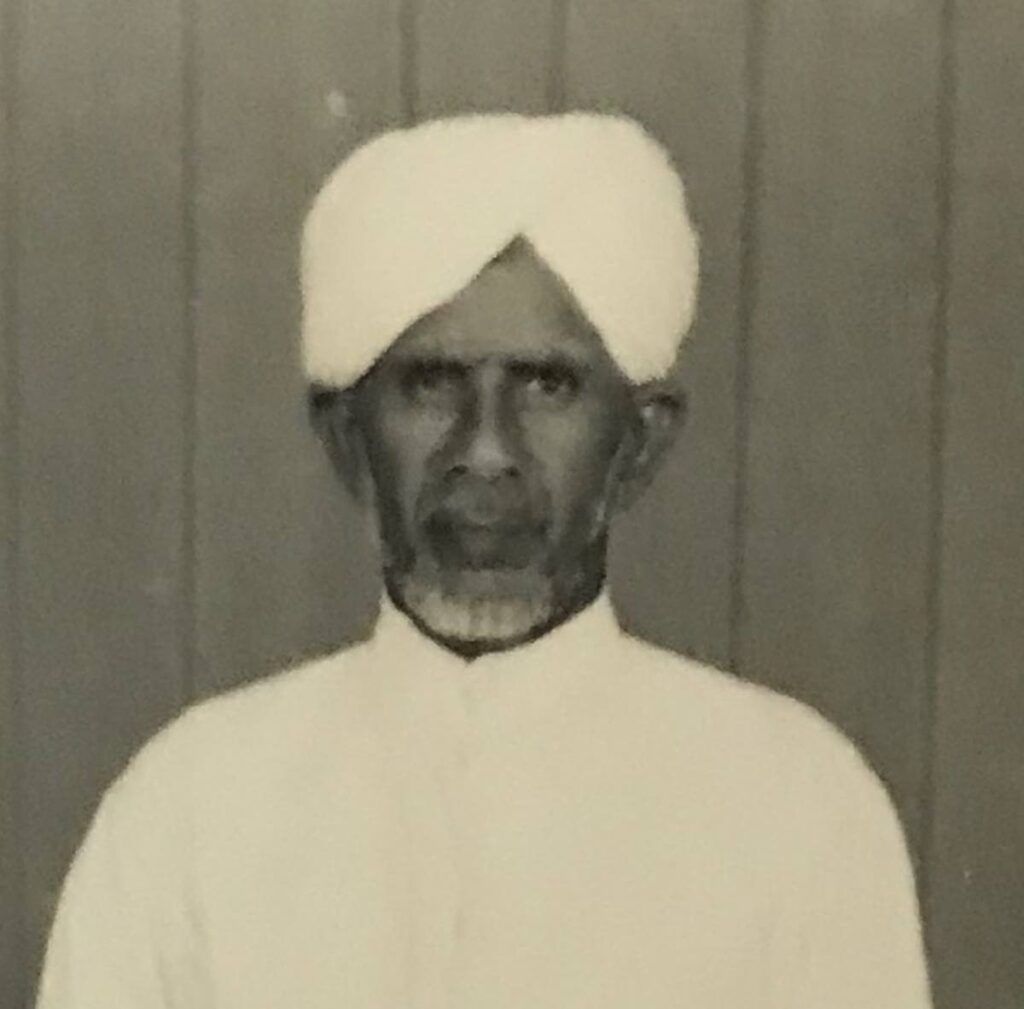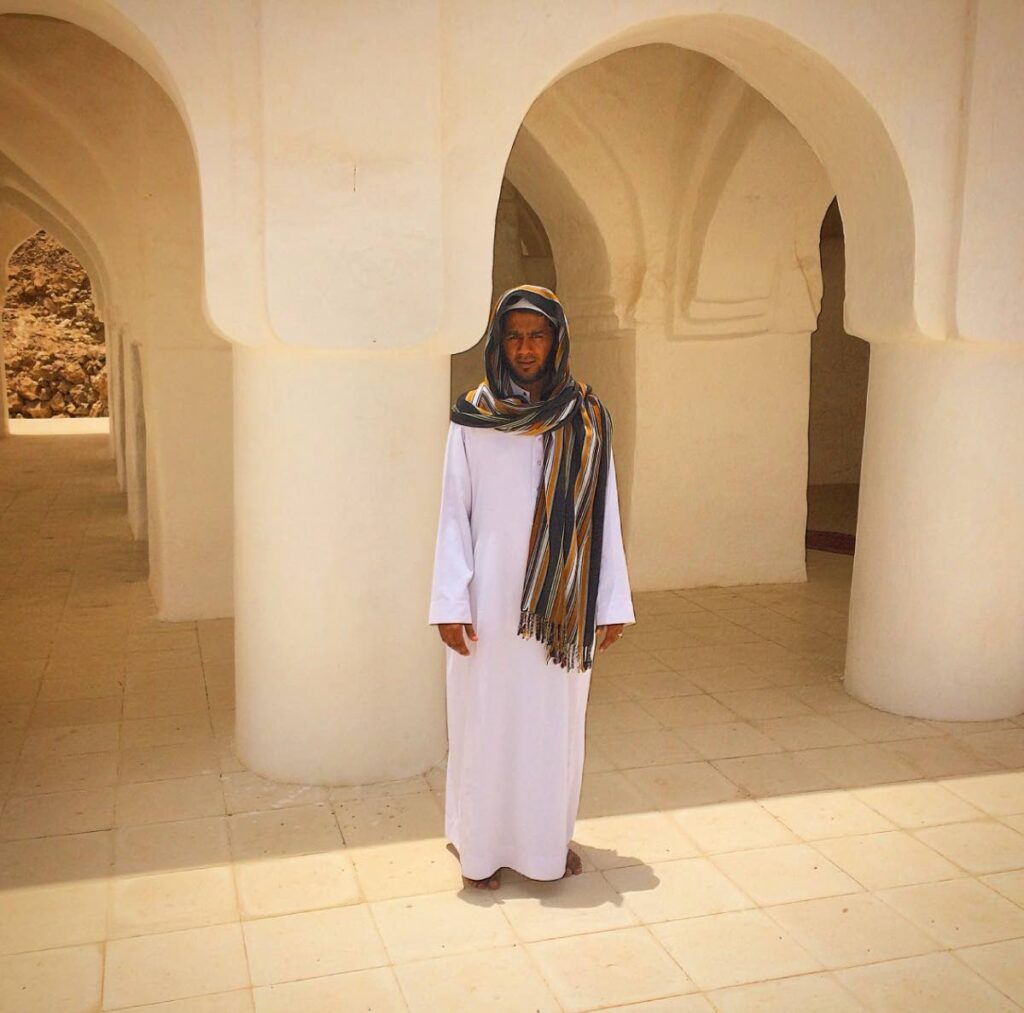Imam Mohammed: Remember the 'brotherhood of the boat'

BAVINA SOOKDEO
Salahudeen Mohammed, at 35 years old, is one of the youngest imams in Trinidad and Tobago. The father of three is also an engineer and prison chaplain.
His family’s connection to India lies with his grandfather, Imam Sirajudeen, who arrived as an indentured labourer from India in 1917.
Sirajudeen was a pioneering figure in the local Muslim community, instrumental in establishing the Montrose Masjid and a founding member of Anjuman Sunnat ul Jamaat Association (ASJA). His son Imam Ghiasudeen, who is Mohammed's father, then continued this legacy, serving as an economist in the public service and an imam deeply involved in community work. He served the Montrose community as the assistant imam for more than 20 years and then as the imam at Markaz al ASJA in Charlieville.
Born and raised in Montrose, Chaguanas, Mohammed moved to Longdenville two decades ago.
“I didn't have an inclination to become an imam initially, but I had a deep passion for my religion. I saw Islam as holistic, inclusive and practical in today’s society.”
This interest was nurtured through discussions with his father and interactions with prominent Muslim scholars, both locally and internationally.

Mohammed went to Montrose Government School, Presentation College, Chaguanas, and then to the UWI, where he got a BSc in engineering. Despite his qualifications, finding a job proved challenging, so he did a master’s degree in industrial innovation, entrepreneurship, and management at the University of TT. In 2011, he finally got a job in the public utilities, where he is now a senior engineer.
“While doing my master's, I realised that many misunderstandings about Islam could be cleared up by explaining its core principles of love, peace, togetherness, happiness, inclusion and tolerance. After finishing my master’s, my love for my religion grew, driven not by material gain or position but by a genuine passion for learning about Islam.”
He attended Islamic lectures, did various courses offered by the ASJA and was mentored by several teachers from various countries including Canada, the US, Yemen, Saudi Arabia, Egypt and Sudan. Every December, he tries to attend a retreat in Canada, Revival of the Islamic Spirit, where mainstream Sunni scholars discuss various topics and host a knowledge retreat where classical Islamic texts are studied.

In 2013, he was invited to serve as a prison chaplain and still serves, delivering the Friday sermon once a month at the Arouca Remand Yard and Maximum Security Prison. In January, Mohammed was recommended as the official Muslim prison chaplain after the death of Brother Imam Imtiaz. On a regular basis, Mohammed now liaises with different Friday speakers, scheduling times to serve the prisons.
“We visit prisons to speak with inmates, understand their needs, aid in their reformation, and let them know they are not alone. We let them know they have the ability to become better members of society."
In 2014, Mohammed travelled to Yemen, where he witnessed a holistic practice of Islam focused on soul purification and inclusivity.
“This experience reinforced my understanding that Islam is about self-improvement and serving the community. My teachers in Trinidad and abroad also embodied this approach, striving to purify their souls to better serve others.
"Upon returning to Trinidad, I continued attending classes with local scholars.”
In 2017, Mohammed’s path took a significant turn when he was asked to lead the Masjid ul Nur in Longdenville.
“There was an issue with the leadership at the Longdenville Masjid and my teachers approached me, encouraging me to serve the community. It was a difficult decision, but with their support and blessings, I accepted.”

Mohammed attributes his ability to balance his many responsibilities, to effective time management and the discipline instilled by his faith.
“I get up early, organise my thoughts and schedule, and mentally prepare for the day.
"My religion taught me this. We pray five times a day, and this practice helps in structuring my time efficiently.”
As one of the youngest imams in Trinidad, Mohammed has faced scepticism and challenges.
“People might not always recognise or acknowledge me but my father taught me to be sincere and humble. Sincerity speaks for itself, and humility is crucial, especially in a society that often pushes away from these values.”
His dedication to the community led him to organise initiatives like successful 5K runs in 2018, 2019, and 2020. He plans to restart these events.
“Whatever change you want to see in society, you need to be that change,” he urged. “Be sincere about your ideas, and you will connect with like-minded individuals.”
Asked how he feels about the country celebrating Indian Arrival Day, he re-emphasised the importance of remembering and celebrating the "brotherhood of the boat,” and the solidarity and fraternity among the indentured labourers.
“We came from a certain place of being in need and depending on each other, so we're never too big and we should not be too boastful about anything. When you recognise the humanity and the commonality between your fellow brethren, you are able to relate to them and you are able to love them.”
In order to preserve culture, Mohammed advocates for the conservation of cultural and historical records.

“One of the projects I want to embark on is the proper documentation and preservation of the history of different communities, masjids, schools and the many unknown figures who have contributed significantly to our society. Their stories should be preserved and taught in schools to ensure future generations appreciate the sacrifices made for their freedom and peaceful coexistence.”
Mohammed said young individuals aspiring to become leaders should, “Aspire to serve and give your best in whatever capacity God has placed you. Be the best student, teacher, or professional you can be, and do it for the sake of God. Life is challenging, but with sincerity, humility, and dedication, you can make a positive difference in society.
“On Indian Arrival Day we need to remember the Brotherhood of the Boat, said Mohammed.
“The unity and fraternity among indentured labourers, regardless of their faith. They supported each other, cared for one another’s children, and created an inclusive community.
“Today, we should celebrate this spirit of brotherhood and commonality. Most people in Trinidad descend from slaves and indentured labourers, and recognising our shared history fosters love and unity. We are blessed to live in a society where temples, masjids, and churches coexist peacefully, reflecting our journey back to God.”

Comments
"Imam Mohammed: Remember the ‘brotherhood of the boat’"